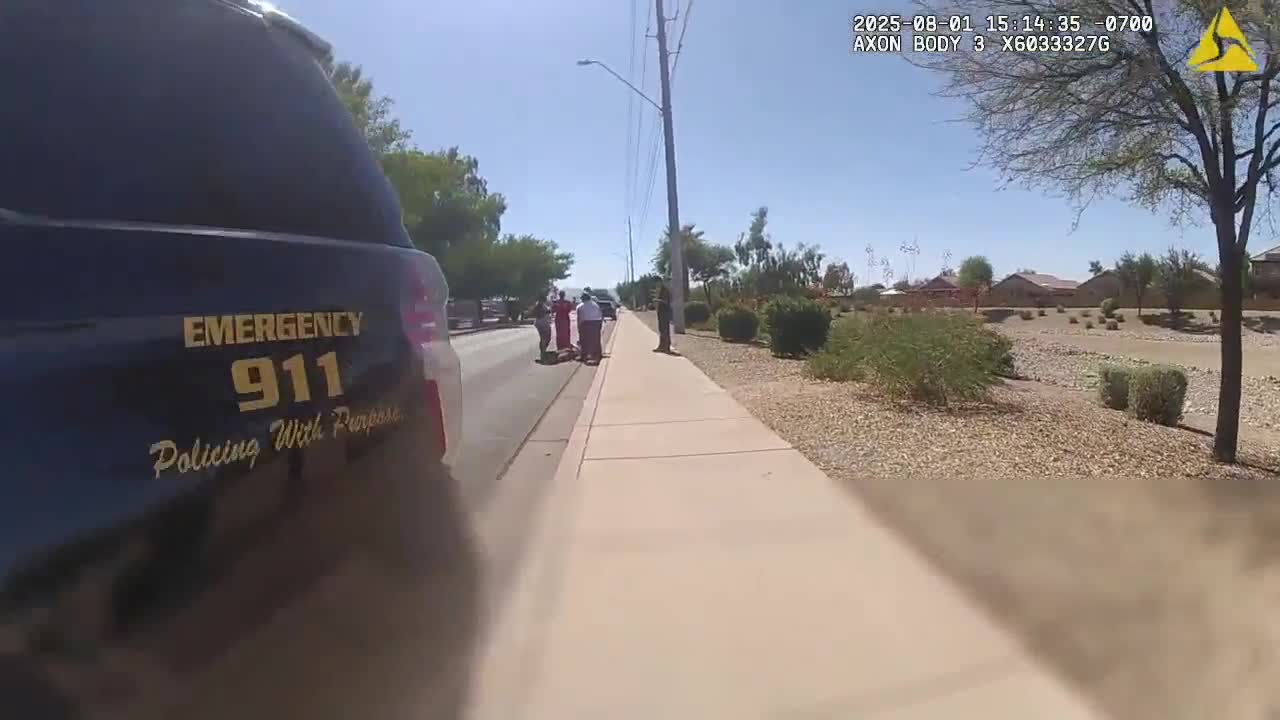EL MIRAGE, AZ — A 17-year-old Arizona student suffered severe heat stroke and burns after being forced to walk home from school in 112-degree heat due to changes in her district's transportation policy.
June Shaver was looking forward to starting her junior year at Dysart High School. She wanted to join volleyball, make new friends, and get her learner's permit.
But her plans were derailed on her second day of classes when she had to walk the approximately two-mile trek home in extreme heat.
"I didn't get the opportunity to do that because of what happened," Shaver said.
During her walk home, Shaver stopped at a corner store for water but began feeling the effects of heat stroke about a block from her El Mirage home.
"I started hallucinating, I felt like I could see someone walking towards me. But it felt like it was like that for hours. But also my vision was colored, it was blue and green," Shaver said.

Do you have a concern in your community or a news tip? We want to hear from you!
Connect with us: share@abc15.com
El Mirage police body camera video shows the moment officers arrived after a good Samaritan noticed Shaver on the hot asphalt and called 911. She doesn't remember how long she was there, but it was long enough for her to have a seizure and reach a body temperature of 107 degrees.
Shaver suffered second and third-degree burns up and down her body, keeping her hospitalized for all of August.
"Remembering what happened, it just sort of bugs me a little bit. I wanted to be able to have a normal year," Shaver said.
District changes transportation policy
With her guardians at work, Shaver didn't have the option to take the bus. This year, the Dysart school district changed its transportation policy so high school students who live within two radial miles aren't eligible for district transportation. Shaver's house is right near that mark.
The district previously said in a statement that the new boundaries were a necessity to ensure the district can operate in a fiscally responsible manner. The district added that its bus fleet is aging, something a failed November 2024 bond would have helped address.
Another bond is on the ballot this November. The district says if that passes, they would certainly re-evaluate the transportation situation.
Read the full statement from the Dysart School District below:
"Due to laws regarding student records and medical privacy that we must abide by, we are not able to provide any information on this type of incident. However, we can share that anytime a student has a medical condition or health incident, we work very closely with the family to support the student’s education and ensure they have what they need.
Regarding our transportation policy - Last spring, we had the difficult task of notifying our families about the need to extend our transportation eligibility requirements [dysart.org] in order to reduce the daily strain on our aging bus fleet and remain within our budget. With the majority of our buses being 15-20 years old, it is becoming more and more difficult and expensive to maintain them. It has been over 19 years since voters approved a bond for Dysart, which has impacted a number of needed projects, including bus replacements, along with school safety improvements, AC unit replacements, roof repairs, building a new elementary school, and obtaining land for a high school. The new transportation boundaries were a necessity in order to ensure the district can continue to operate in a fiscally responsible manner. With safety as a top priority, we have shared information about safety to and from school, including heat-related precautions, with our families.
It is important to note that a bond question that would have provided funding for new buses was defeated in November 2024. A bond question is on the ballot again this November, along with an Override Continuation. If the bond measure is approved by voters, we would certainly re-evaluate our transportation situation to determine what would be feasible moving forward."
"I'm more so not wanting it to happen to anyone else," Shaver said.
Shaver says her recovery may keep her out of in-person classes until next semester. She's still looking forward to getting that learner's permit and plans to help other students avoid her experience.
"If I have friends who have to walk home, I'll be like, 'Hey, get in my car!'" Shaver said.
This story was reported on-air by a journalist and has been converted to this platform with the assistance of AI. Our editorial team verifies all reporting on all platforms for fairness and accuracy.






